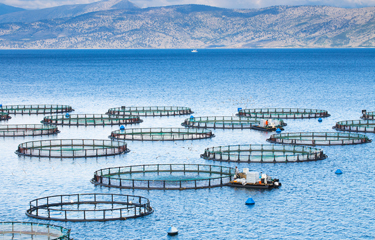The COVID-19 pandemic has hit Greece’s sea bass and sea bream farming industry very hard this past year, necessitating urgent support from the country’s government, according to the Hellenic Organization of Aquaculture Producers (ELOPY) Board Chair Apostolos Touralias.
While the impacts of COVID-19 varied from company to company, Touralias estimated that overall, Greek sea bass and sea bream sales fell by 10 percent last year to around 115,000 metric tons (MT), worth around EUR 530 million (USD 633.7 million). This production came from 302 marine fish farms and 26 fish hatcheries.
Sales of larger-sized fish (upwards of 600 grams) had been particularly affected due to the suspension of the HORECA (hotel, restaurant, and café) sectors in many of the fish farmer’s key markets, Touralias told Euro2day.gr. However, employment in the sector, including the 23 member-companies of ELOPY, which represent about 90 percent of Greece’s total production, was not affected. Among other things, this was due to the fact that because of the nature of fish farming, production cannot just be stopped, he said.
As a result, resources need to be made available “here and now” by the Greek government, alongside the creation of aquaculture zones, Touralias said. Similar community resources introduced to respond to the economic issues cased by COVID-19 pandemic have already been introduced in other European Union countries, he said.
This support could help assist the industry achieve its projected growth of 3 to 4 percent in the next few years and its ongoing competition with neighboring Turkey, which produced approximately 165,000 MT of sea bass and sea bream last year, Touralias said.
The main financial support tool is the Operational Fisheries Program (EPAL) 2014-2020. Since April 2020, this has been able to provide compensation to aquaculture companies affected by the pandemic, but almost a year later it has not yet been utilized, Touralias said.
According to ELOPY, the Greek production of bass and bream currently represents more than 60 percent of the E.U.’s production of these species, and close to 30 percent globally. Greece’s fish are exported to more than 35 countries.
Photo courtesy of Sodel Vladyslav/Shutterstock







